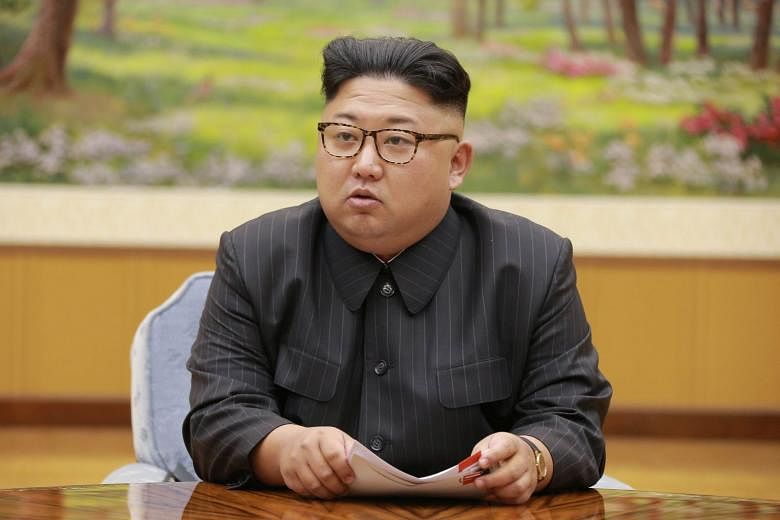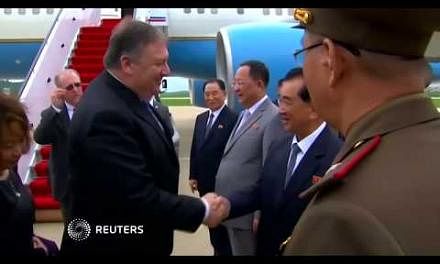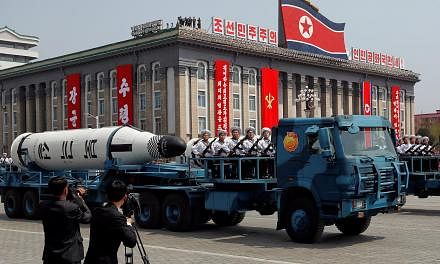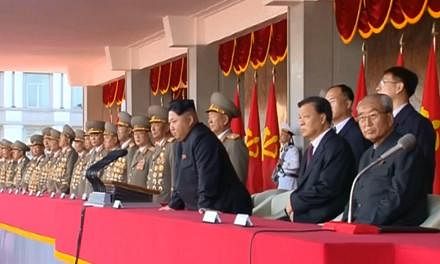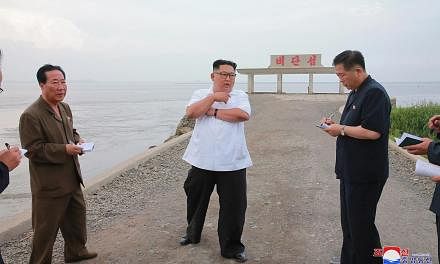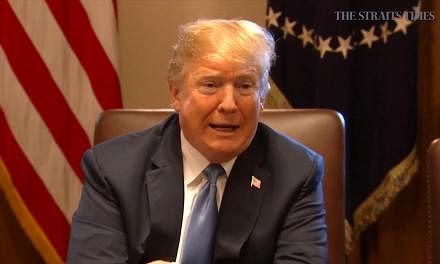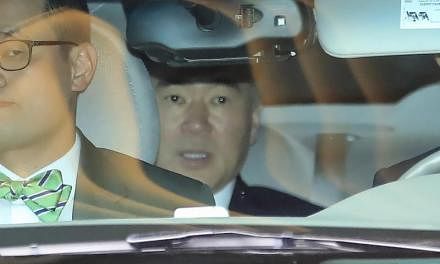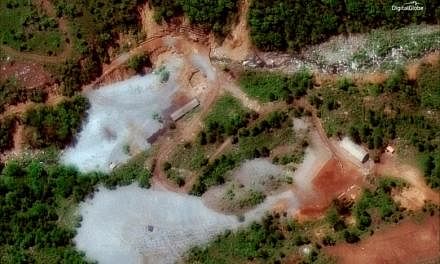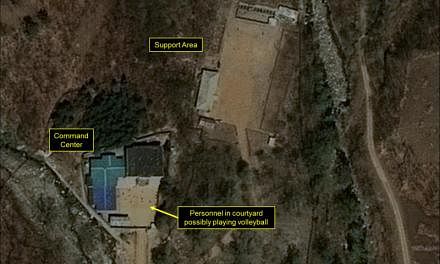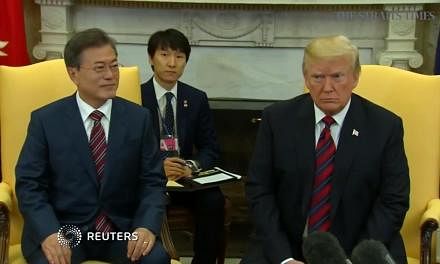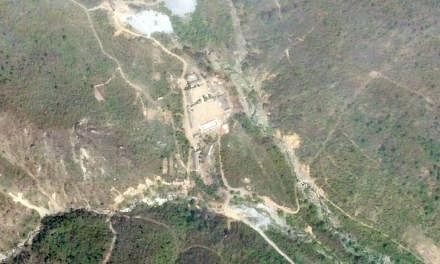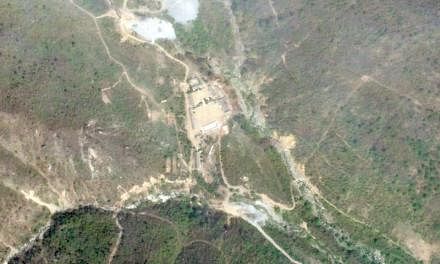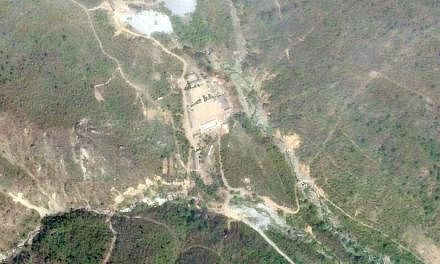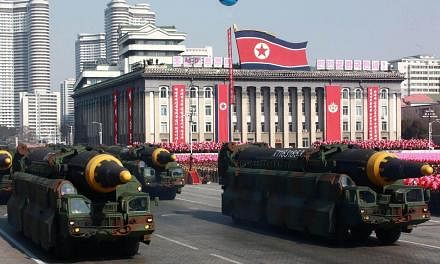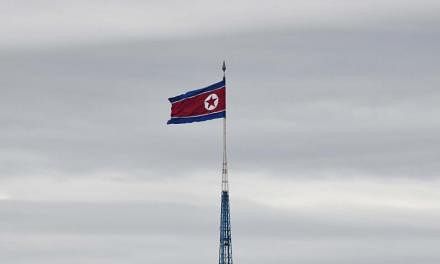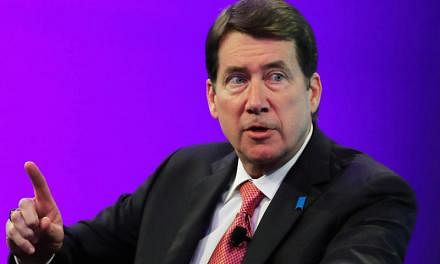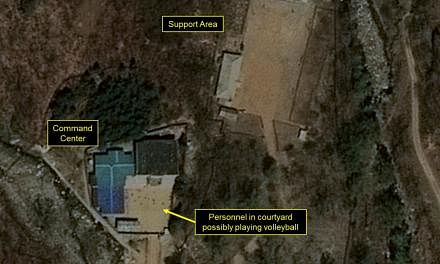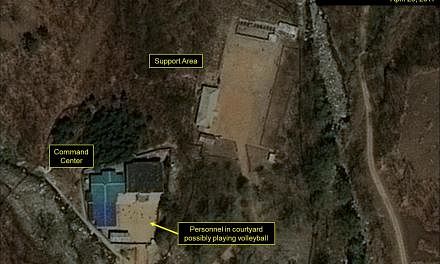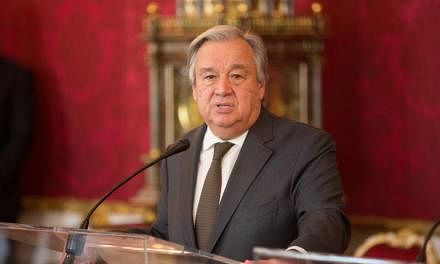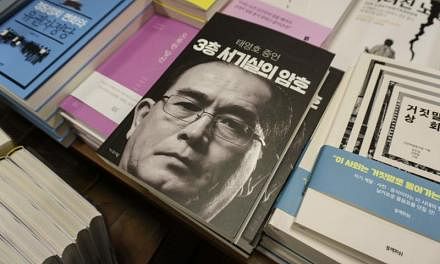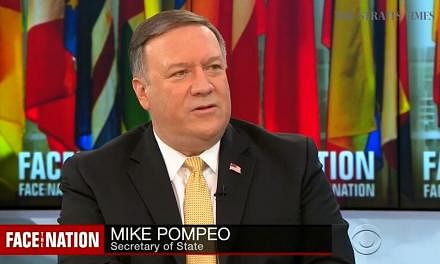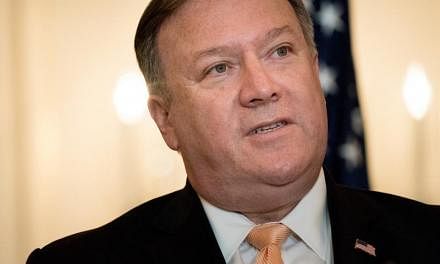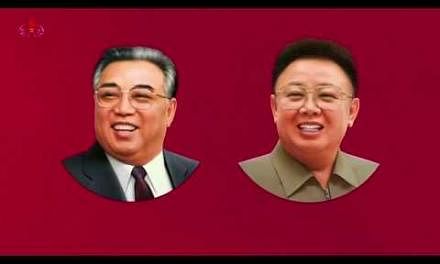SEOUL (AFP, REUTERS) - North Korean leader Kim Jong Un has praised the welcome the South gave his sister and said it was important to build on the Olympics-driven momentum for dialogue on the divided peninsula, reported the state-run KCNA news agency.
Kim's younger sister Kim Yo Jong - one of his closest confidantes - was part of the nuclear-armed North's diplomatic delegation to the Games that made worldwide headlines.
The KCNA published a short report on Kim meeting the delegation on Monday following its return to Pyongyang. The KCNA report is the first official reaction from Kim - the third generation of the Kim Il Sung family to rule the isolated and impoverished North - since his sister's charm offensive in Pyeongchang.
"After receiving the delegation's report, Kim Jong Un expressed satisfaction over it and said that very impressive were the features of the south side which specially prioritised the visit of the members of the DPRK side who took part in the Winter Olympics," KCNA said, adding the North Korean leader "expressed thanks" to Seoul.
The report added that Kim Jong Un gave "important instructions" for possible measures to maintain the atmosphere of conciliation and dialogue without offering more details.
South Korea's hosting of the Winter Olympics has sparked a sudden and rare moment of rapprochement across the Demilitarised Zone after months of sky-high tensions over Pyongyang's rapidly advancing nuclear weapons programme and bellicose missile tests.
After months of rebuffing invitations from South Korea to attend the Olympics, Kim did an about-face in a New Year speech.
The North has since sent its athletes to the South Korean ski resort of Pyeongchang, along with cheerleaders and performers, and dispatched a diplomatic delegation that included Kim's sister Kim Yo Jong.
She became the first member of the North's ruling dynasty to set foot in the South since the end of the Korean War.
Every detail of Kim's visit to the South as the key member of the North Korean diplomatic delegation to the Winter Olympics was scrutinised, from the clothes she wore and her facial expression to the bag she was carrying and even her handwriting.
Her visit divided South Koreans with some hoping it might usher in a real opportunity for reconciliation while others angrily burned the North Korean flag and criticised Moon for being too soft on Pyongyang.
She shook hands several times with the South's President Moon Jae In, cheered a unified ice hockey team with him, and delivered a letter from her brother to Moon, asking the South Korean leader to visit "at his earliest convenience". Moon replied both Koreas should try to make conditions that would make the visit possible.
Talk of an inter-Korean summit, which would be the first since 2007 if it happened, come after months of tension between Pyongyang, Seoul and Washington over North Korea's nuclear and missile programmes.
'Warm climate'
The KCNA report suggested the North Korean leader wished to build on that rapprochement, saying he felt it "is important to continue making good results by further livening up the warm climate of reconciliation and dialogue".
Seoul said on Monday it would push ahead with its plans for reunions of family members separated by the 1950-53 Korean War in order to sustain the dialogue prompted by the North Korean delegation's visit.
The speed of the Olympics-driven rapprochement across the Demilitarized Zone that has divided North and South since the end of the Korean war has been extraordinary.
But how deep it runs, how far it will go and how long it will last once the Games are over remain very open to question, analysts say.
Pyongyang's Olympic diplomacy has also highlighted differences between Seoul and its key protector the United States over how to handle the reclusive regime and its nuclear weapons programme.
Washington insists that Pyongyang must take concrete steps towards denuclearisation before any talks can begin, while Moon - whose parents escaped from the North in a US evacuation during the war - has long argued for closer involvement to bring it to the negotiating table.
